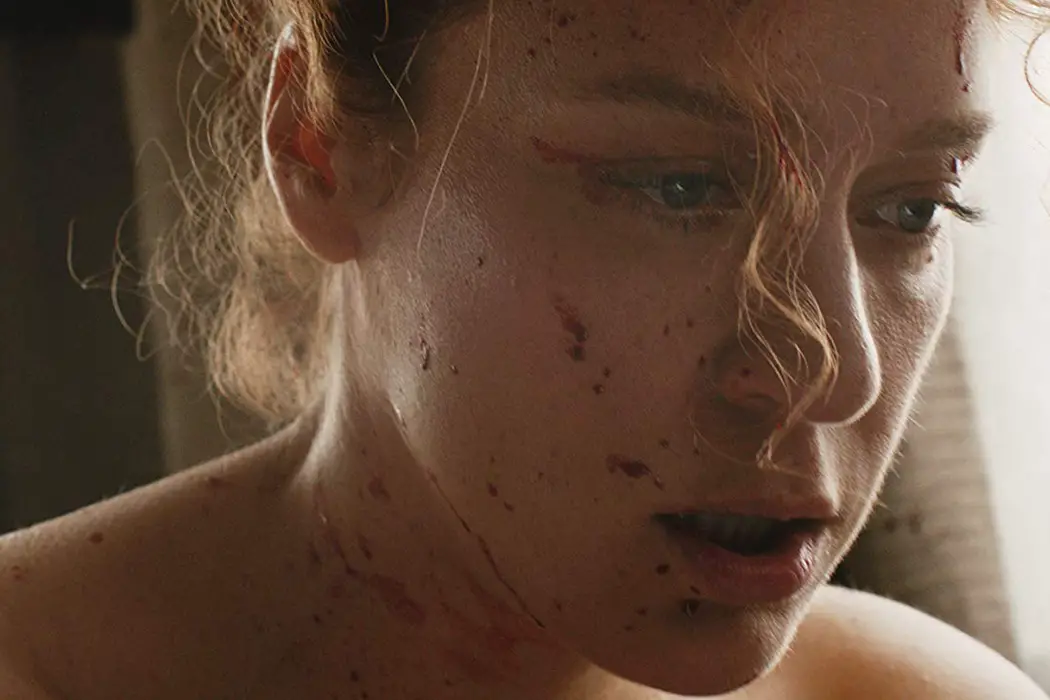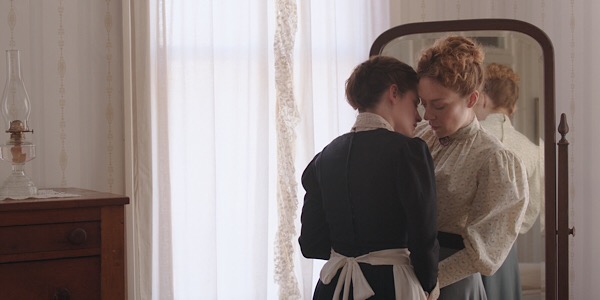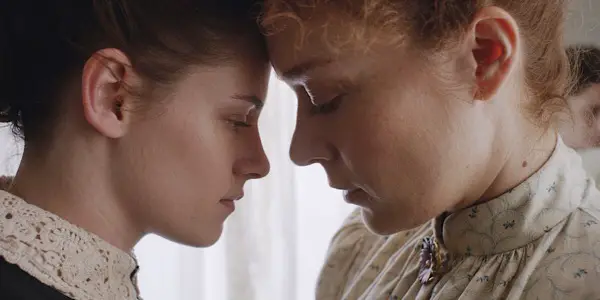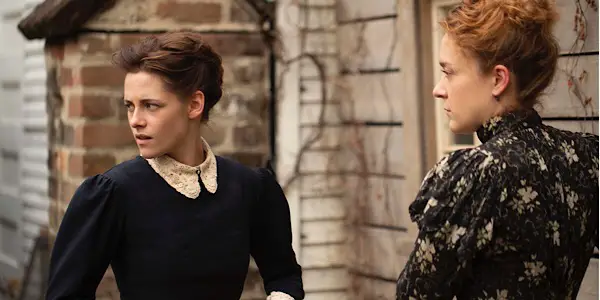LIZZIE: A Distinctive Take On The True Crime Legend

Kristy Strouse is the Owner/Editor in Chief of Film Inquiry,…
Everyone knows the tale of Lizzie Borden, or at least has heard the name. There have been many theories, and Lizzie has been the muse for songs, novels and several adaptations. In the newest retelling Lizzie, we get a bold new version. Did she kill her father and stepmother? Moreover, did she have a reason? Was there more to the story?
It may be a fictional tale of a real-life crime that we will never fully know the truth of, but it sure is an intriguing and especially a well-designed one.
Female Characters Amid Abuse And Male Dominance
Lizzie Borden (Chloë Sevigny) and her older sister Emma (Kim Dickens) live with their father Andrew (Jamey Sheridan) and stepmother Abby (Fiona Shaw). The Borden’s were wealthy in their Massachusetts town, and yet Andrew was known for refusing electric light, and was consistently uptight when it came to his daughters. In Lizzie, Borden is a restless woman, challenging her father at every turn, incurring his wrath whenever the mood suited him. She also has fits, something akin to epilepsy.

Still, despite her yearning to escape her confines she’s content to read, walk around outside, and tend to her pigeons that are kept in the barn. By all accounts, in Craig William Macneill’s version, the independent Lizzie seems misunderstood.
Their newest Irish Immigrant housemaid Bridget (Kristen Stewart) arrives and draws the attention of not only Lizzie, but also Andrew. Along with portraying Andrew as a verbal and physical abuser, he also resorts to sexual abuse with the pretty young maid, visiting her bed chambers at night with regularity. It’s as if the whole house is holding their breath with Andrew, knowing he could wreak havoc at any time.
When her father begins to receive threatening letters, he becomes concerned with the family’s finances. He invites his brother John (Denis O’Hare), who is wickedly detestable here, completely undermining his daughters and wife who he believes is unsuitable for the task, as a recipient of his will. The extent of his malice is shown when Lizzie tries to undermine him. He takes an ax to her beloved pigeons and serves them up for dinner. It’s a cruel, but powerfully rapt dinner scene that is churning with tension.
When the murders happen we’re not given the specifics right away, providing the account of the transgressions out of sync. Once the mystery is divulged it is a grisly murder, and there’s nothing held back to show the massacre. We get a very intricately planned sequence of events that is both disturbing and primeval.
Careful Consideration With The Details
Sevigny commands the screen with a cool demeanor, one that is awakened by the appearance of Stewart. However, their relationship isn’t as much a romance as it is a comfort amid their shared suffering.

The two work by occasional glances, brief touches, or Lizzie teaching Bridget how to read. Their passion isn’t the forefront of the story, but merely a warmth for them both to grab on to, something for each of these women to steal for themselves when so much isn’t afforded to them.
There’s a portion of Lizzie that touches on the trial and recounting the day in question. The film does a little bit of jumping, adding to the suspenseful unraveling of the truth (as it’s prepared here). My biggest regret with Lizzie is in its inability to maximize on the elements that it flourishes in. The script by Bryce Kass seems like it loses focus in the third act, unsure of how to finish.
Its strongest areas are the atmosphere and direction, and of course – Chloë Sevigny, who was perfectly cast. One of my favorite aspects of the film is Jeff Russo’s impeccable score, which is a gentle menace, with intricate strings that pull the tautness to a tight standstill as the countdown to the act in question ticks away. It is chilling.
Directed by Craig William Macneill, he uses the large home as a character within itself, orchestrating the imprisonment of our leads, as well as a box to dissect their motives. With several scenes the camera is poised in a way that admires and admonishes the cast, as if spying on their moves, unless in a moment of fury or fear – then it rushes ahead, adding to the overall portrayal.
The splendid cinematography by Noah Greenberg elevates the picture. The film is also gorgeous to look at; much like her father’s desire to forsake electricity, there’s an ambiance of that of candle light and soft sunshine that balances the dark inner spectrum.

Kristen Stewart’s Bridget fits right in the ideal soft spot of strength and vulnerability. She’s soft spoken and uncertain of her role in the home, but yet she’s steely, and steadfast. Stewart’s presence is only ever upstaged by Sevigny, who commands the screen. The two do share a spark, making it feasible that these two would fall into one another’s arms.
Conclusion: Lizzie
With a film such as this, that has a lot feminine empowerment beneath its violent ends, there’s a lot of very pretty details. Costume design, aesthetics, even our two leads – in simple fair – stand out. Against the guise of what Lizzie Borden potentially is (a murderess) Lizzie provides us with a stark embodiment, sure to please and evoke, if not possibly bore those expecting a constant stream of action.
Lizzie works by slowly sharpening its knife, giving us a solid appraisal of how one woman could be driven to such deeds.
What did you think of this adaptation? Did it stand out? Let us know your thoughts in the comments below!
Lizzie will premiere in the US on September 14th and November 14th in the UK. For international release dates click here.
Does content like this matter to you?
Become a Member and support film journalism. Unlock access to all of Film Inquiry`s great articles. Join a community of like-minded readers who are passionate about cinema - get access to our private members Network, give back to independent filmmakers, and more.
Kristy Strouse is the Owner/Editor in Chief of Film Inquiry, writer, podcaster, and all around film and TV fanatic. She's also VP of Genomic Operations at Katch Data and is a member of The Online Association of Female Film Critics and The Hollywood Creative Alliance. She also has a horror website: Wonderfully Weird & Horrifying.













